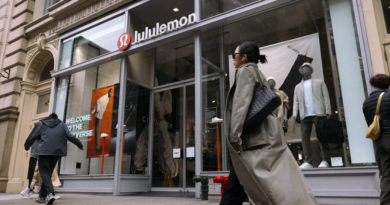Shou Zi Chew, CEO of ByteDance-owned TikTok, had to confront claims about ties to China in the U.S. Senate
TikTok was one of several social media companies present at Wednesday’s U.S. Senate hearing on online safety for children. But CEO Shou Zi Chew had to face a barrage of questions on a different topic: his nationality.
U.S. Senator Tom Cotton (R-Ark.) decided to probe TikTok’s Singaporean CEO, Shou Zi Chew, on his nationality. Cotton asked the TikTok CEO if he had any citizenships besides Singapore, what passports he held, the nationality of his wife and children, and plans for future citizenship.
After Cotton asked Chew whether he was a member of the Chinese Communist Party, the TikTok CEO responded with an exasperated “Senator, I’m Singaporean. No.”
Chew referred several times to his national service—the mandatory two years usually spent serving in the Southeast Asian country’s military—in his responses to Cotton. Singapore does not allow for dual citizenship.
In his prepared remarks, Chew said TikTok will invest over $2 billion in trust and safety efforts this year. He noted that TikTok prevents users from directly messaging anyone under 16, and bars content from underage users from being downloaded or recommended to strangers. Chew also revealed that the average age of a TikTok user in the U.S. is over 30.
China connections
Chew has faced questions about his, and TikTok’s, alleged ties to China before. In a Congressional hearing last year, lawmakers grilled Chew about the potential threat TikTok posed to U.S. national security. In that instance, Chew claimed that ByteDance was not an agent of China nor any other country.
TikTok, which is owned by Chinese social media giant ByteDance, has found itself entangled in the wider geopolitical battle between Beijing and Washington. The social media app is dogged by fears that user data might end up in the hands of Chinese authorities, or that TikTok’s recommendations could be influenced by Beijing.
TikTok has tried to distance itself from its Chinese parent company, setting up offices in Los Angeles and Singapore. The social media company also has “Project Texas“, a $1.5 billion project that will house U.S. user data and protect it from unauthorized foreign access. Earlier this week, the Wall Street Journal reported that TikTok employees still transfer U.S. data to TikTok’s Chinese parent; Chew disputed the article’s accuracy on Wednesday.
Later on Wednesday, Cotton defended his line of questioning on Fox News. “Singapore, unfortunately, is one of the places in the world that has the highest degree of infiltration and influence by the Chinese Communist Party,” he claimed.
Singapore has an ethnic Chinese majority, but the country’s government tries to emphasize a multi-racial identity. Singaporean leaders have long maintained their wish to preserve ties with both the U.S. and China, with deputy prime minister Lawrence Wong saying last May that the country wants to “stay friends with both sides.”
The Southeast Asian country has attracted interest from Chinese businesses hoping to avoid tensions between Washington and Beijing, as well as wealthy Chinese individuals hoping to park their fortunes outside of China.




